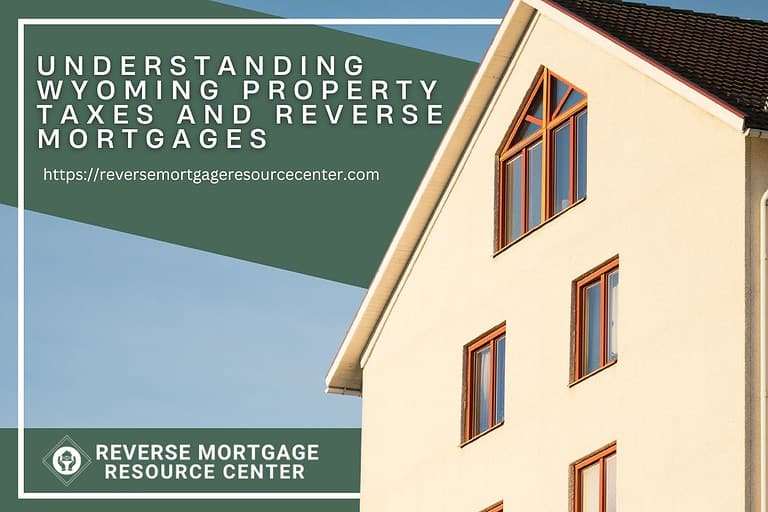Preserve Your Utah Homeownership with a Reverse Mortgage
Homeownership is a long-held ambition for many Americans, and it’s no different in Utah’s lovely state. Utah is a unique blend of natural beauty and bustling settlements, nestled between the magnificent Rocky Mountains and the wide deserts of the Southwest. Owning a home in Utah is more than simply having a place to live; it’s about securing a piece of the American dream. However, homeowners may experience financial difficulties that jeopardize their ideals as they age. In such cases, a reverse mortgage can effectively preserve homeownership and secure a comfortable retirement. This article will examine how reverse mortgages work, their benefits, and why they might be a great alternative for Utah residents wanting to keep their house.
Understanding Reverse Mortgages
Before we get into the advantages of reverse mortgages for Utah homeowners, we must first define what a reverse mortgage is and how it works.
A reverse mortgage is a financial arrangement for homeowners aged 62 and up. A reverse mortgage, as opposed to a standard mortgage, allows you to turn a part of your home equity into tax-free cash without the burden of monthly payments. Rather than paying payments, you get payments from the lender, thereby converting the equity in your house into a source of income.
Many factors, including age, the appraised value of your home, and current interest rates determine the amount you can borrow with a reverse mortgage. The more you can borrow, the older you are and the more valuable your home is.
Benefits of a Reverse Mortgage in Utah
1. Financial Security in Retirement
One of the most important reasons to consider a reverse mortgage in Utah is to provide financial security during retirement. Many retirees are confronted with the dilemma of limited income and increased expenses. A reverse mortgage can give much-needed financial security by converting your home equity into a consistent source of income.
Although the cost of living in Utah is cheaper than in some other states, retirees must still cover housing prices, healthcare expenditures, and day-to-day living expenses. A reverse mortgage might assist you in meeting these financial obligations without depleting your savings or relying exclusively on Social Security benefits.
2. Stay in Your Beloved Home
Utah is an excellent retirement destination because of its diversified landscapes, friendly neighborhoods, and a strong sense of community. You may have strong ties to your home and neighborhood, whether in Salt Lake City, Provo, or a small village in southern Utah. You can keep your beloved house without worry of foreclosure if you use a reverse mortgage. You can live in your home for as long as you continue to meet the fundamental conditions.
3. No Monthly Mortgage Payments
The absence of monthly mortgage payments is one of the most appealing aspects of a reverse mortgage. Many retirees live on limited incomes and find it difficult to make ends meet. The strain of monthly mortgage payments can be especially difficult. You don’t have to worry about these payments with a reverse mortgage. Instead, the lender gives you money, which you might use to cover bills, pay off current mortgages, or even fund home upgrades.
4. Flexible Use of Funds
The revenues of a reverse mortgage can be used for various purposes. Whether you need to cover healthcare costs, make home upgrades, vacation, or simply improve your quality of life, you can spend the money in any way you want. This adaptability can be quite beneficial in maintaining a comfortable and fulfilling retirement in Utah.
5. Non-Recourse Loan
A reverse mortgage is a non-recourse loan, which means the lender cannot seize your other assets or estate to repay the loan. Knowing your other possessions and heirs are safe gives you peace of mind.

How to Qualify for a Reverse Mortgage in Utah
While a reverse mortgage can provide considerable benefits to Utah homeowners, it is critical to understand the eligibility requirements:
- Age: To qualify for a reverse mortgage, you must be at least 62.
- Homeownership: You must be the sole owner of your house or have a low mortgage balance that may be paid off with reverse mortgage proceeds.
- Occupancy: The home must be your primary residence.
- Financial Assessment: Lenders will analyze your financial condition to guarantee you can afford the loan’s responsibilities, such as property taxes and homeowner’s insurance.
- Property Type: The home must be a single-family or multi-unit property in which you reside in one of the units.
- Counseling: Before getting a reverse mortgage, you must receive counseling from a HUD-approved counselor to ensure you fully grasp the loan’s terms and ramifications.
Meeting these requirements is the first step toward keeping your Utah property with a reverse mortgage.
Common Reverse Mortgage Misconceptions
Before making a decision, it’s critical to dispel the following myths concerning reverse mortgages:
1. Losing Homeownership
One of the most common misconceptions is that you lose property ownership when you receive a reverse mortgage. In reality, you are still the owner of your property, and the reverse mortgage is merely a borrowing against the equity in your home. As long as you complete the loan criteria, you can continue to live in your house and retain ownership.
2. High Costs
While there are upfront costs and fees involved with reverse mortgages, they are comparable to those associated with standard mortgages. These charges are frequently financed into the loan, lowering your out-of-pocket expenses. Furthermore, the interest on a reverse mortgage is often tax deductible, lowering the entire cost. Check with your accountant to determine if this applies to your situation.
3. Leaving Debt to Heirs
Another prevalent misperception is that a reverse mortgage will place debt on your heirs. Reverse mortgages, as previously stated, are non-recourse loans. This means that when the loan matures (when you sell, move out or pass away), the lender can only recover the amount owed from the home sale. Your heirs can keep the remaining equity if the home’s worth exceeds the loan sum.

How to Choose a Reverse Mortgage Lender in Utah
Choosing the right lender is important in getting a reverse mortgage in Utah. Here are some pointers to help you make an educated decision:
- Research Local Lenders: Begin by looking into reverse mortgage lenders in Utah. Look for lenders with a good reputation and a history of assisting Utah homeowners.
- Check Credentials: Confirm that the lender is licensed and accredited by the appropriate authorities. In addition, they should be members of the National Reverse Mortgage Lenders Association (NRMLA).
- Compare Terms: Obtain quotes from several lenders and compare the terms, such as interest rates, fees, and loan possibilities. This will assist you in locating the best terms for your scenario.
- Ask Questions: Do not be afraid to inquire about the loan process, qualifying criteria, and the lender’s experience with reverse mortgages. A trustworthy lender should be open and willing to share information.
- Read Reviews: Look for online customer reviews and testimonials to understand the lender’s reputation and customer service.
- Seek Guidance: Talk to a financial expert or housing counselor who specializes in reverse mortgages about your alternatives. They can offer useful insights and assist you in making an informed selection based on your financial circumstances and goals.
- Understand Loan Types: Reverse mortgages are classified into two types: Home Equity Conversion Mortgages (HECMs) and proprietary reverse mortgages. Ensure you understand the distinctions between these options and select the one that best meets your requirements.
- Review the Loan Agreement Thoroughly: Before signing any agreements, carefully review the loan’s terms and conditions. You must comprehend the interest rate structure, payback terms, and other contractual requirements.
- Get a Written Estimate: Request a written estimate of the total cost of the loan, including all fees, from the lender. This will allow you to compare offers from other lenders more effectively.
- Seek Legal Counsel: If you have any issues or questions about the legal elements of a reverse mortgage, consider speaking with an elder law or real estate law specialist.
Remember that researching and selecting the correct lender is an important step in reaping the benefits of a reverse mortgage while safeguarding your financial interests.
Potential Alternatives to Reverse Mortgages
While reverse mortgages can be a good option for many Utah homeowners wishing to protect their homeownership and ensure their financial future, it’s equally crucial to consider other financial options that may be more appropriate for your circumstances. Here are a few alternatives to think about:
1. Downsizing
Downsizing to a smaller, more affordable house might free up equity and cut expenses if your existing property is too large or expensive to maintain. This method can offer you additional retirement funds without requiring you to take out a reverse mortgage.
2. Home Equity Line of Credit (HELOC)
A Home Equity Line of Credit (HELOC) is similar to a reverse mortgage in that it allows you to borrow against the equity in your home but with the added flexibility of making interest-only payments or paying down the principal as you see fit. This solution may be appropriate if you occasionally require access to funds.
3. Sale-Leaseback
You sell your house to an investor or buyer and then lease it back from them in a sale-leaseback arrangement. This might offer you an immediate lump sum of money while still allowing you to live in your house. However, you should carefully analyze the leaseback agreement’s provisions.
4. Government Assistance Programs
Your financial position may make you eligible for government assistance programs for housing and healthcare bills. Medicaid, Supplemental Security Income (SSI), and the Low-Income Energy Assistance Program (LIHEAP) can provide financial assistance to qualified persons.
REVERSE MORTGAGE RESOURCE CENTER ~LIVE LIFE ON YOUR TERMS~
Our Lending Team has been serving our clients since 2004. We are passionate about serving our clients with integrity to help them achieve their financial goals.







